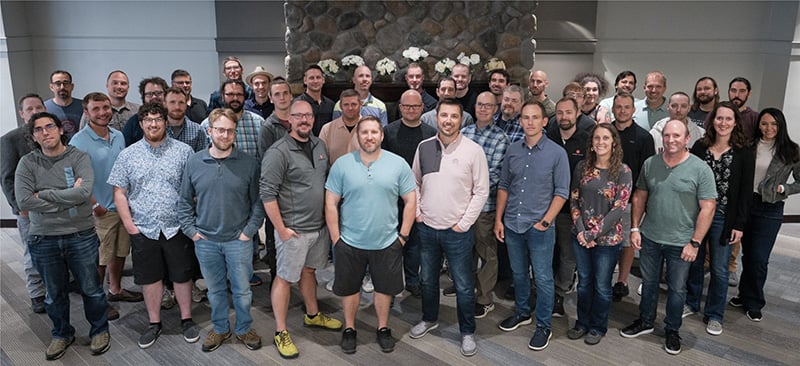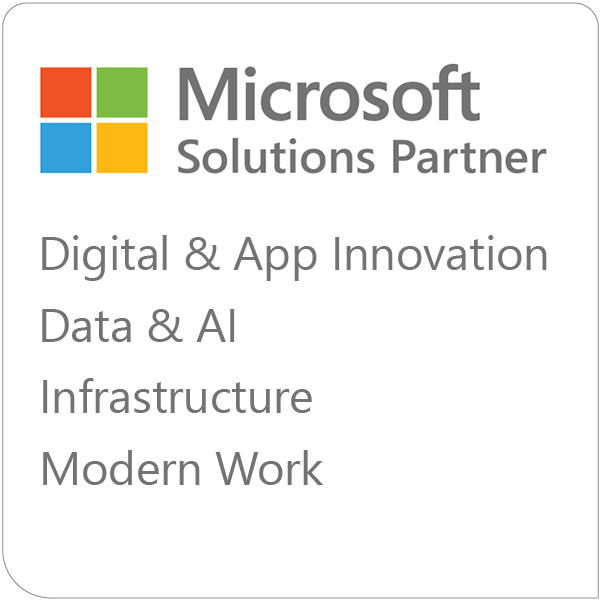Over 77 million websites use a content management system (CMS). We’ve all heard that “content is king,” so it’s not surprising that businesses would need a tool to create, manage, and modify website content.
But a CMS is more than a way to upload blog posts — adding the right content management system to your website can be a game-changer, giving you the ability to customize your site’s functionality, create and edit content quickly and collaboratively, and improve your position on search engines.
Keep reading to learn about the top 8 benefits of using a CMS.
1. A CMS makes it easy to update and maintain your website
A business website is always changing and evolving. You might need to add new product pages or publish new blogs or case studies. Old information might need to be updated. Or you might want to create unique landing pages for ad campaigns.
If all of these changes require technical resources, your efficiency and ability to connect with your customers will suffer. A CMS allows you to create and edit content quickly, easily, and without coding expertise. Content management systems typically offer a user-friendly WYSIWIG editor that lets you edit content as if you were using a standard word processor. You can preview the page as you go to see how your content will look on the website.
Most content management systems have version control, allowing you to track and manage changes made to your content over time. If you need to revert to a previous version of your content, you can do it with a click.
For an example of how a CMS can create an excellent content editing experience, check out our case study on the Kalahari Resorts & Conventions website. When that project won an Umbraco Award for Best Editing Experience, the jury said:
This site gives the editors full control over components on the page with easily customizable areas that you can preview as they are created. The customizable e-commerce section gives authors finely tuned options for each location and full control over each product.
2. Anyone can update the site
Because a CMS makes website edits and updates so easy, users don’t need any technical skills to manage content.
If you want more control over who can update different parts of your site or if you want to review the updates before other people publish them, most content management platforms allow you to set user roles within your organization. For example, one user group might be able to make any change to the site, while another can add and edit content and a third group can only edit.
3. Your website is customizable
Any content management system will come with a set of built-in features. But with the right CMS, your website isn’t limited to out-of-the-box functionality. Many content management systems provide a marketplace or repository of pre-built add-ons, plugins, and extensions. Some take it a step further with APIs that allow for seamless integration with almost any third-party services and platforms.
That means you can build a website with any feature you desire. For example, many businesses use third-party software to add ecommerce functionality or marketing automation to their CMS-based website.
4. Templates and components make it easy to achieve a consistent look and feel
A template is a defined page layout and design that helps you maintain consistency across your website. For example, all of your blog posts can use one template, while your product pages use another. Some content management systems will also offer a component page builder, allowing you to be more granular and build a custom page using a library of available components.
Content management systems often offer themes with pre-made templates and/or components. You can use these, but without customization, your website might not look much different than other sites using the same theme.
For a fully unique look, a developer can create custom templates or components. Once these are created, non-technical users can easily create new web pages that match the rest of the site.
5. A CMS helps with SEO
Content management systems can help you optimize your website for search engines.
SEO features range from basic to advanced. For example, even the simplest CMS will have fields for you to enter meta descriptions, page titles, and image tags. Other platforms offer features like analytics, automatic URL optimization, on-page SEO suggestions as you write, and simple 301 redirect creation.
If there are SEO features that your CMS doesn’t offer off-the-shelf, they can often be added with a plugin or integration.
6. Content collaboration is easy
If you have multiple users working on content creation and management, using a CMS facilitates collaboration. All content is in a central repository that can be accessed from anywhere. Version control means that multiple content editors can work on the same content without worrying about overwriting.
Some content management systems also have built-in collaboration features like comments/annotations or workflows to take content through a process of creation, editing, review, approval, and publishing.
7. You can schedule content
With a CMS, you can schedule your content to publish at any time. This is useful if you want to load multiple pieces of content in advance or if you need to schedule it for a time when you’re not in the office.
8. Support is available
Many content management systems offer customer support. It may be included in your subscription price or available as an add-on to a free CMS.
Furthermore, you can often find community support from other users of the same content management system. For example, one of our favorite content management systems, Umbraco, is famous for its community of passionate developers and users who are always happy to answer questions or discuss the uses of Umbraco.
Limitations of off-the-shelf content management systems
While we highly recommend using a CMS for your business website, there are some disadvantages if you use an out-of-the-box CMS.
Content management systems like WordPress are easy for any user to set up and start using to build a website, even if they don’t have technical skills. But a site like that won’t be highly customized for your organization’s needs. To make a website worthy of your business that’s also easily editable with a CMS, work with an expert website development service.
A web developer will be able to create your perfect CMS-based website and advise you on your options for additional functionality going forward.
What are the best content management systems?
The right content management system for your website depends on your unique needs. For example, if you’re trying to set up a simple site with just a few pages, a CMS like WordPress or Wix might be all you need. But for greater customization or enterprise-level features, there are better options.
At Emergent Software, we tend to recommend either Umbraco or Sitecore. You can read more about each in these blog posts:
We’d be happy to talk to you about CMS options and how we can help you build the best website for your business. Just get in touch!






